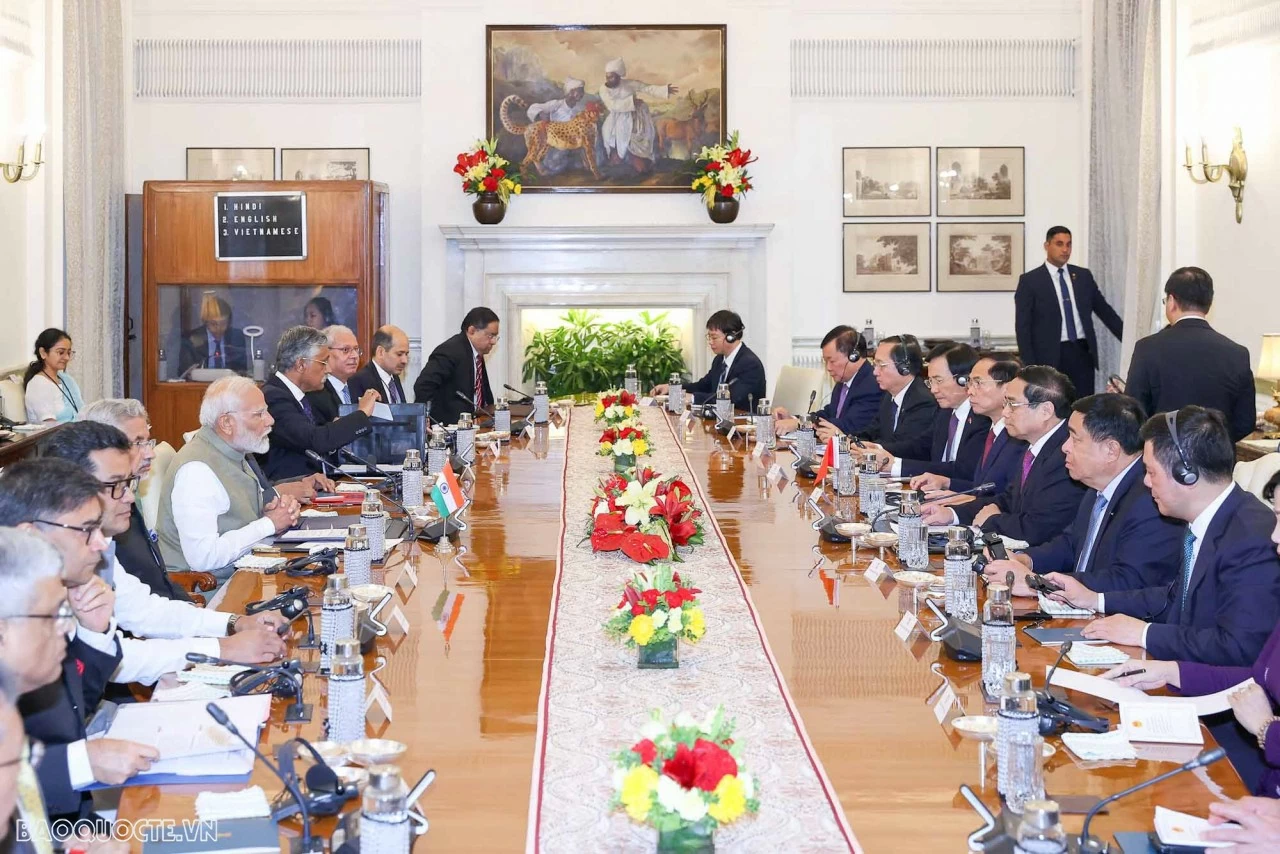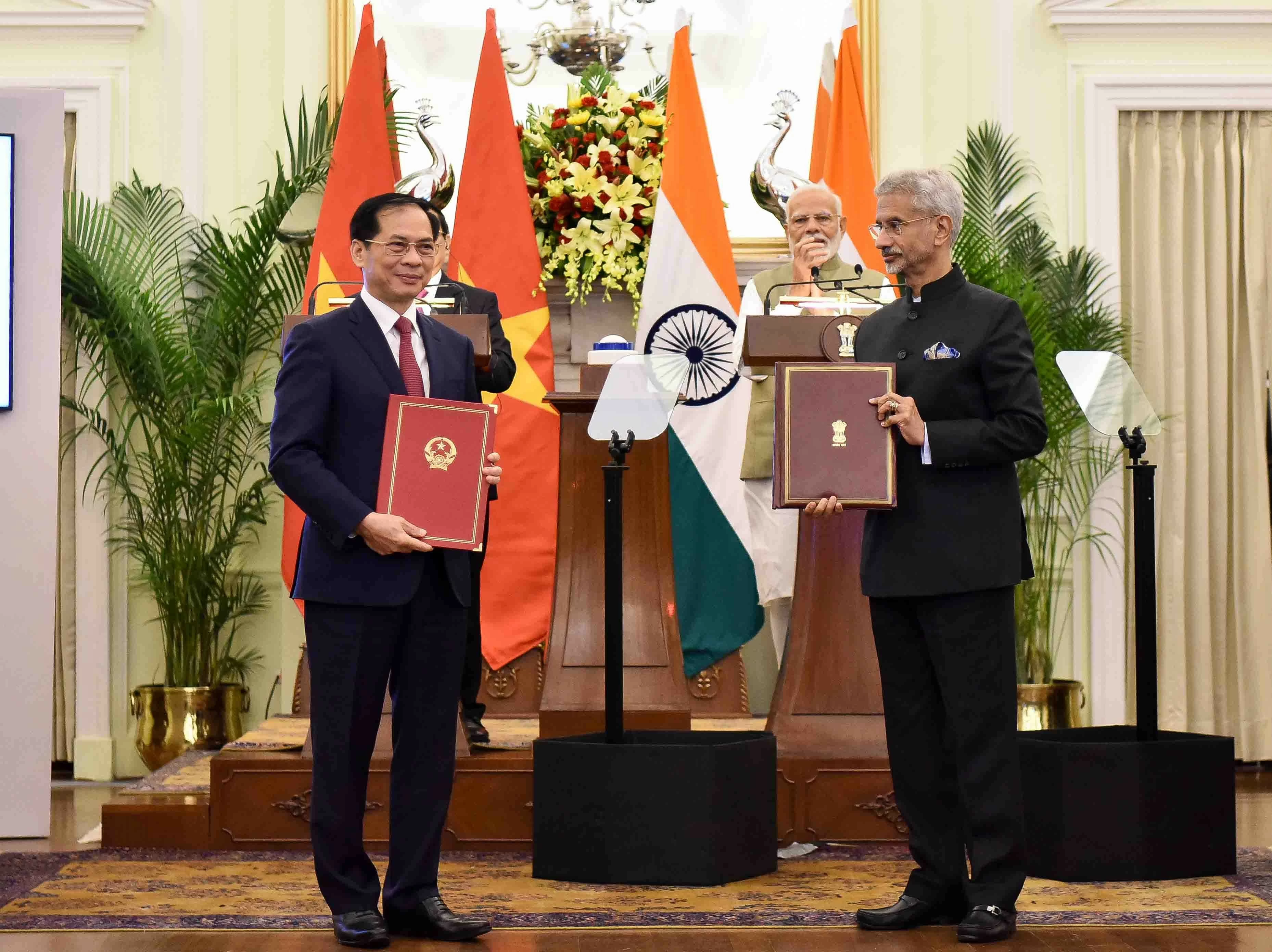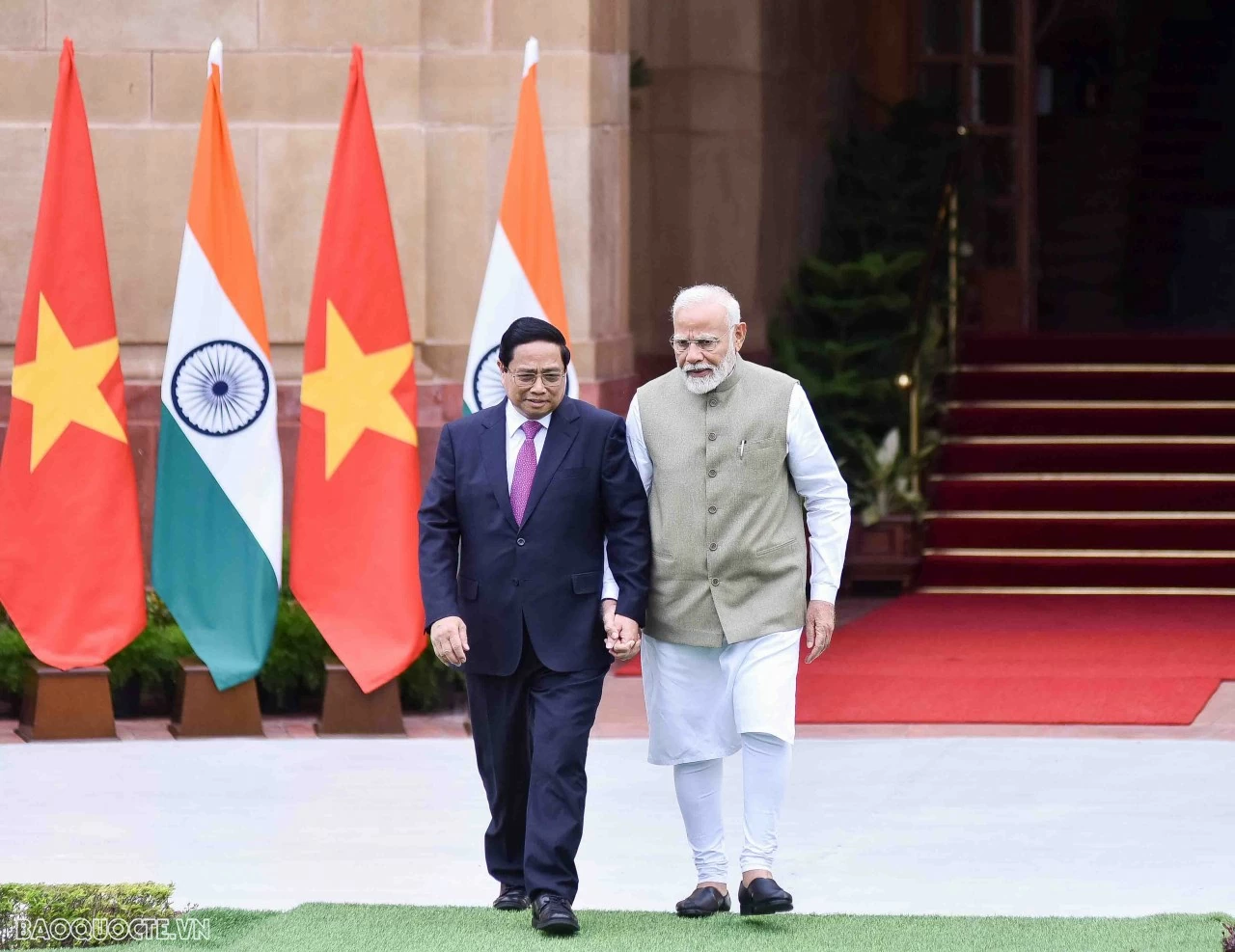
Vietnam, India Prime Ministers engage in fruitful talks in New Delhi
Latest
 |
| On August 1, in New Delhi, Prime Minister Pham Minh Chinh and his Indian counterpart Narendra Modi engaged in productive talks. (Photo: Nguyen Hong) |
Together, they acknowledged that the bond between Vietnam and India, nurtured by generations of their leaders and citizens, needs to be cherished as an invaluable asset.
The partners are satisfied with the remarkable progress in ties since the establishment of a bilateral comprehensive strategic partnership in 2016 during Prime Minister Modi's visit to Vietnam, which was marked by a high level of political trust and fruitful collaboration in national defence, economy-trade and investment, culture-education, and people-to-people exchange.
In only seven years, two-way trade has skyrocketed, tripling from over 5 billion USD in 2016 to 15 billion USD in 2023. The opening of the first direct air route between the two countries in 2019 dramatically increased Indian tourist arrivals in Vietnam from 170,000 in 2019 to 400,000 in 2023. At present, there are 56 flights a week between major cities of the two countries.
The two Prime Ministers shared the resolve to further deepen the Vietnam-India comprehensive strategic partnership on the foundation of the 52-year bilateral ties, to meet the aspirations and legitimate interests of their people.
They agreed to strengthen traditional cooperation areas and expand into emerging ones under the principle of higher political trust, deeper national defense-security cooperation, more substantive and effective economic, trade, and investment ties; broader joint work in sci-tech and innovation, and closer cultural and people-to-people exchanges.
They pledged to maintain regular exchange of all-level delegations across various channels and decided that the two Prime Ministers would meet annually, either through visits or on the sidelines of multilateral conferences. They also underscored the importance of further strengthening the role of the Joint Commission meeting co-chaired by the two Foreign Ministers to review and concretise cooperation and oversee the effective implementation of the 2024-2028 Action Plan for the comprehensive strategic partnership.
 |
| The Foreign Ministers of Vietnam and India to review and concretise cooperation and oversee the effective implementation of the 2024-2028 Action Plan for the comprehensive strategic partnership. (Photo: Nguyen Hong) |
Speaking highly of the effective implementation of the Joint Vision Statement on the Vietnam-India Defense Partnership toward 2030 since its signing in 2022, the two Prime Ministers vowed to expand coordination in defence and security industries, and maritime security, and build reliable partnerships in cybersecurity, intelligence sharing, and counter-terrorism. India committed ongoing support to training and capacity-building for Vietnam’s defence and security forces.
Host and guest concurred on adopting strong measures to double the current trade and investment volume by 2030, including instructing relevant agencies to utilise existing mechanisms for regular exchanges to eliminate trade barriers and enhance trade promotion efforts.
Prime Minister Chinh urged India to actively consider proposals from Vietnamese firms regarding the issuance and renewal of the Bureau of Indian Standards (BIS) certificates for goods imported from Vietnam. He also advocated for the early signing of agreements on e-commerce and bilateral trade to fully tap into the growing retail market.
 |
| Prime Minister Pham Minh Chinh and Indian Prime Minister Narendra Modi after productive talks. (Photo: Nguyen Hong) |
The two Government leaders suggested expanding cooperation in science-technology, particularly in core technology, semi-conductor chips, AI, innovation, rare earth exploitation and processing technology, and information technology, and working towards the early establishment of a digital partnership forum and the signing of a digital partnership agreement.
Exchanging views on regional and international issues, they agreed to continue support each other and closely coordination at regional and international forums, particularly the UN, the Association of Southeast Asian Nations (ASEAN) and ASEAN-led mechanisms. They upheld the principles on ensuring security, safety and freedom of maritime and aviation, peacefully settling disputes on the basis of international law, including the 1982 UN Convention on the Law of the Sea (UNCLOS 1982).
Prime Minister Chinh invited his Indian counterpart to visit Vietnam again.













